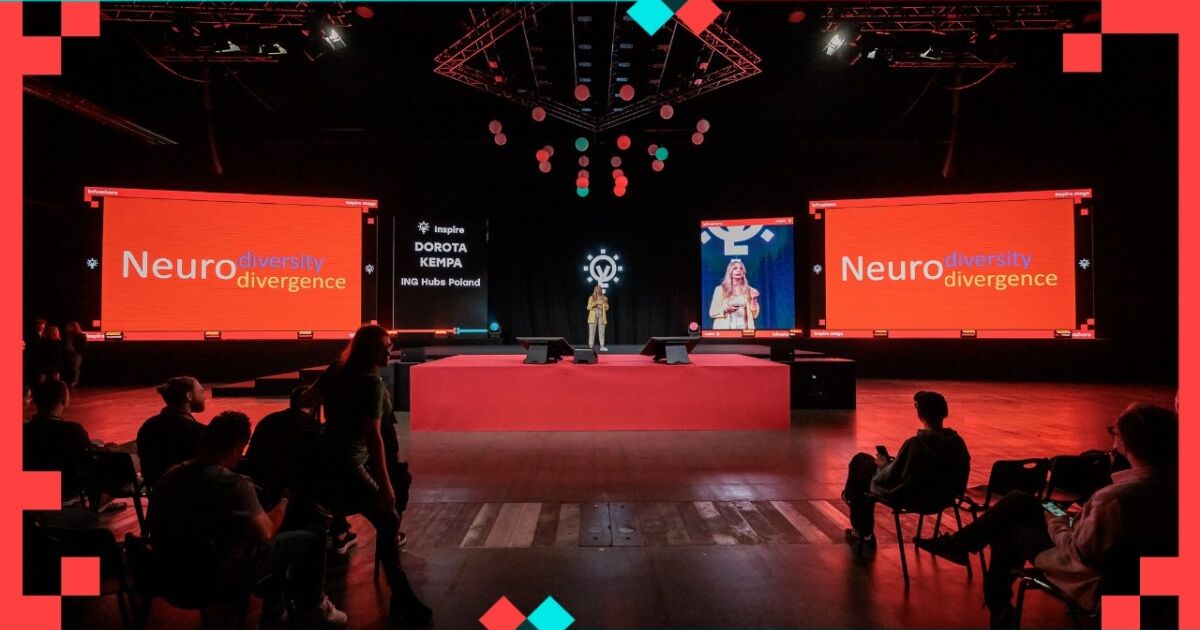VIEW SPEECH SUMMARY
Introduction and Personal Story
- Speaker Dorota Kempa shares her personal experience growing up with undiagnosed ADHD.
- Highlights how diversity, especially neurodiversity, involves different ways brains work.
- Explains neurodivergence includes conditions like autism, ADHD, anxiety disorders, and their impact on individuals.
- Shares childhood challenges such as disorganization, forgetfulness, and academic struggles.
- ADHD was misunderstood by her family and society; she was labeled but not helped adequately.
- She received her diagnosis as an adult and discusses the emotional impact.
Understanding Neurodivergence and ADHD
- Neurodivergent population is estimated between 15-20%, including diagnosed and symptomatic individuals.
- Neurodivergence often coexists with other conditions (e.g., autism, OCD, anxiety).
- ADHD is described as a motivation deficit disorder stemming from brain chemical imbalances.
- People with ADHD experience "time blindness," difficulty estimating time, and executive dysfunction (inability to start tasks).
- Rejection sensitivity and social challenges are common, affecting work and communication.
How Scrum Helps Neurodivergent People at Work
- Dorota finds Scrum methodology supportive in managing ADHD-related challenges.
- Key Scrum tools helping her:
- Story points instead of time estimates to gauge complexity and focus needed.
- Small, well-defined tasks that are easier to start and finish.
- Structured meetings (dailies, plannings, reviews, retrospectives) provide accountability and team support.
- Retrospective meetings help clear misunderstandings and reduce social friction.
- Emphasizes the importance of healthy pressure from team dependencies.
- Highlights the usefulness of visual scheduling and teamwork in overcoming executive dysfunction.
Key Messages and Call to Action
- ADHD is not an excuse but a condition that requires proper understanding and support.
- Neurodivergent people need tools and accommodations to work effectively, akin to how people with physical disabilities need aids.
- Encourages workplaces to embrace neurodiversity and create supportive environments.
- Dorota offers to discuss neurodivergence further and invites outreach after the presentation.
Actionable Items
- Recognize the importance of neurodiversity and neurodivergence in workplace settings.
- Use Scrum or similar frameworks that emphasize small tasks, focus-based estimations, and regular team meetings to aid neurodivergent employees.
- Schedule and respect structured meetings (daily stand-ups, planning, reviews, retrospectives) to enhance accountability and communication.
- Create awareness about executive dysfunction and time blindness among teams.
- Promote a supportive work culture that understands and accommodates the needs of neurodivergent individuals.
- Encourage conversations and education about neurodiversity to reduce stigma and improve inclusion.
- Speaker Dorota Kempa shares her personal experience growing up with undiagnosed ADHD.
- Highlights how diversity, especially neurodiversity, involves different ways brains work.
- Explains neurodivergence includes conditions like autism, ADHD, anxiety disorders, and their impact on individuals.
- Shares childhood challenges such as disorganization, forgetfulness, and academic struggles.
- ADHD was misunderstood by her family and society; she was labeled but not helped adequately.
- She received her diagnosis as an adult and discusses the emotional impact.
Understanding Neurodivergence and ADHD
- Neurodivergent population is estimated between 15-20%, including diagnosed and symptomatic individuals.
- Neurodivergence often coexists with other conditions (e.g., autism, OCD, anxiety).
- ADHD is described as a motivation deficit disorder stemming from brain chemical imbalances.
- People with ADHD experience "time blindness," difficulty estimating time, and executive dysfunction (inability to start tasks).
- Rejection sensitivity and social challenges are common, affecting work and communication.
How Scrum Helps Neurodivergent People at Work
- Dorota finds Scrum methodology supportive in managing ADHD-related challenges.
- Key Scrum tools helping her:
- Story points instead of time estimates to gauge complexity and focus needed.
- Small, well-defined tasks that are easier to start and finish.
- Structured meetings (dailies, plannings, reviews, retrospectives) provide accountability and team support.
- Retrospective meetings help clear misunderstandings and reduce social friction.
- Emphasizes the importance of healthy pressure from team dependencies.
- Highlights the usefulness of visual scheduling and teamwork in overcoming executive dysfunction.
Key Messages and Call to Action
- ADHD is not an excuse but a condition that requires proper understanding and support.
- Neurodivergent people need tools and accommodations to work effectively, akin to how people with physical disabilities need aids.
- Encourages workplaces to embrace neurodiversity and create supportive environments.
- Dorota offers to discuss neurodivergence further and invites outreach after the presentation.
Actionable Items
- Recognize the importance of neurodiversity and neurodivergence in workplace settings.
- Use Scrum or similar frameworks that emphasize small tasks, focus-based estimations, and regular team meetings to aid neurodivergent employees.
- Schedule and respect structured meetings (daily stand-ups, planning, reviews, retrospectives) to enhance accountability and communication.
- Create awareness about executive dysfunction and time blindness among teams.
- Promote a supportive work culture that understands and accommodates the needs of neurodivergent individuals.
- Encourage conversations and education about neurodiversity to reduce stigma and improve inclusion.
Hyperactive way of working
12:10 - 12:30, 27th of May (Tuesday) 2025 / INSPIRE STAGE
Inspirational story about navigating late diagnosed adhd and it's symptoms in adulthood.
Practical examples of how agile enviroment might support neurodivergent employees in reaching their potential.
AUDIENCE:
Startup
Scaleup
Profitable Company
TRACK:
Business & Tech trends
Growth
Personal Growth
TOPICS:
Trending Now



